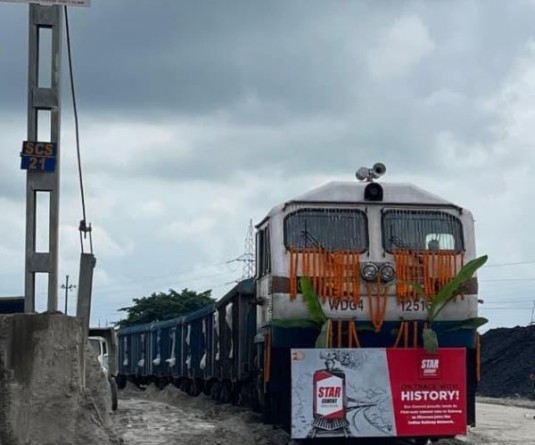
New Delhi, January 7 (ENS): Losing out to China in the construction of an important stretch of the historic Stilwell Road, that once connected Ledo in Assam to Kumming in China, is a setback to the geopolitical calculations India has been making in its eastern neighbourhood. This section links the Pangsau Pass on the Arunachal Pradesh border to Myitkyina in Myanmar’s Kachin state. New Delhi’s shortsightedness is an open book. Yet, in this case, India had expressed its eagerness to develop the stretch from Ledo to Tanai. Myanmar, long reluctant to reopen a road that courses through insurgent territory, has however preferred its best friend China.
The old Stilwell Road was built by General Joseph Stilwell during World War II, to outflank the advancing Japanese army and establish a land supply route to China. India awaited its reopening (and rebuilding of its damaged and disappeared portions) to provide its own landlocked Northeast with a much-needed gateway. Rebuilding and reusing this existing infrastructure would be the Northeast’s easiest entry into Southeast Asia.
Strategically, the Stilwell Road would bolster India’s Look East policy and facilitate trade by opening border points. But getting the opportunity to build a key section of the road would have helped India also check China’s pervasive and still-spreading influence in the region.
Nevertheless, if the Stilwell Road opens in near future, it’s welcome. India has alternatives too: its development of the Sitwe port on the Bay of Bengal will bring the Northeast closer to a commercial sea route, via the Kaladan river and a highway linked to NH 54. Besides, ambitious border infrastructure projects, such as in Manipur’s Moreh where NH 39 can eventually become part of a trans-Asian road system, are meant to develop and integrate the Northeast. Whether or not the reinvented Indo-Bangladesh relations bear fruit any time soon, border infrastructure must be upgraded, for larger trade volumes among other things. And this must be done unilaterally.
Instead of ruing an opportunity lost, Delhi should speed up and not let India’s neighbours dictate its pace and profit.
The old Stilwell Road was built by General Joseph Stilwell during World War II, to outflank the advancing Japanese army and establish a land supply route to China. India awaited its reopening (and rebuilding of its damaged and disappeared portions) to provide its own landlocked Northeast with a much-needed gateway. Rebuilding and reusing this existing infrastructure would be the Northeast’s easiest entry into Southeast Asia.
Strategically, the Stilwell Road would bolster India’s Look East policy and facilitate trade by opening border points. But getting the opportunity to build a key section of the road would have helped India also check China’s pervasive and still-spreading influence in the region.
Nevertheless, if the Stilwell Road opens in near future, it’s welcome. India has alternatives too: its development of the Sitwe port on the Bay of Bengal will bring the Northeast closer to a commercial sea route, via the Kaladan river and a highway linked to NH 54. Besides, ambitious border infrastructure projects, such as in Manipur’s Moreh where NH 39 can eventually become part of a trans-Asian road system, are meant to develop and integrate the Northeast. Whether or not the reinvented Indo-Bangladesh relations bear fruit any time soon, border infrastructure must be upgraded, for larger trade volumes among other things. And this must be done unilaterally.
Instead of ruing an opportunity lost, Delhi should speed up and not let India’s neighbours dictate its pace and profit.





.jpg)
